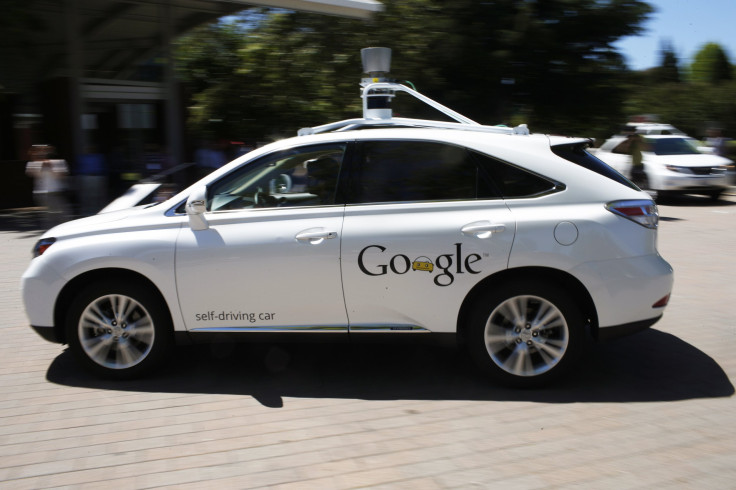Google's Self-Driving Car Will Make Its Next Stop On Busy Virginia Highways

And they're off! Google's self-driving cars could be zipping down some of the most congested highways in Virginia within the next 12 months after years of dodging potholes – on streets and in state capitals – around the country.
Driverless cars will hit the road on Interstates 95, 495 and 66, according to the Richmond Times Dispatch, as well as portions of U.S. 29 and U.S. 50 as part of a research project overseen by the Virginia Tech Transportation Institute. The Google cars will first need to complete test certifications at the Tech Institute's Smart Road, and the technology needs to be tested at the Virginia International Raceway before the cars take the road. Even when they do, a human will remain in the car as a fail safe in case of emergency.
Virginia joins Nevada, California, Michigan, Washington D.C. and Florida as the first states where self-driving cars are authorized for testing. More than 10 other states have considered legislation that would loosen the restrictions on autonomous vehicles. Google is preparing to send self-driving cars onto public streets this summer, and this announcement makes it likely Virginia will be the first place where that will happen on the east coast.
“Other states are saying you need to prove that independently you can do all this testing,” Myra Blanco, director of Virginia Tech's Center for Automated Vehicle Systems, told the Times Dispatch when the plan was announced Monday. “What we are trying to do is show them how to do the testing and how to facilitate the process as well. I think this is going to help us advance the technology and even more important, to attract companies and satellite offices in the Northern Virginia area to develop these new concepts.”
The commuter-packed roadways in northern Virginia are among the most notorious traffic headaches on the East Coast. Officials touted the decision, saying the congestion will test the vehicles' ability to quickly process information and understand its surroundings.
The announcement comes during the same week that Google co-founder Sergey Brin defended the self-driving car after it was involved in another rear-end collision. Brin said the cars have been in 11 accidents since they began testing six years ago but said none were the fault of the vehicle.
© Copyright IBTimes 2025. All rights reserved.



















